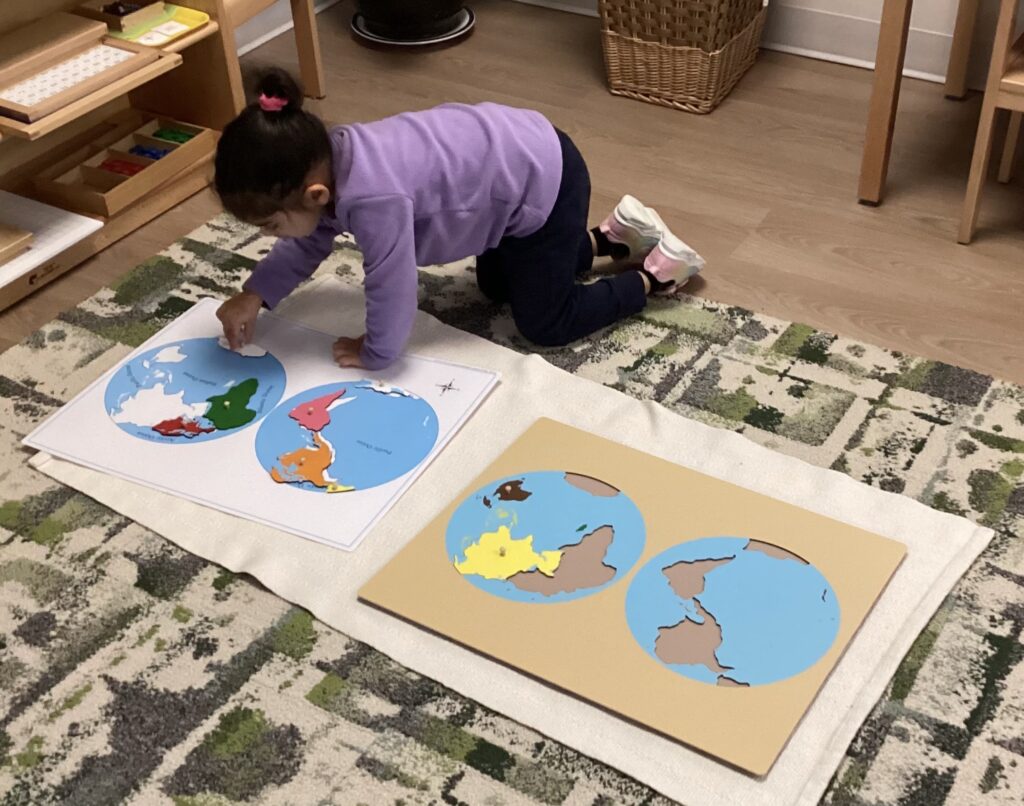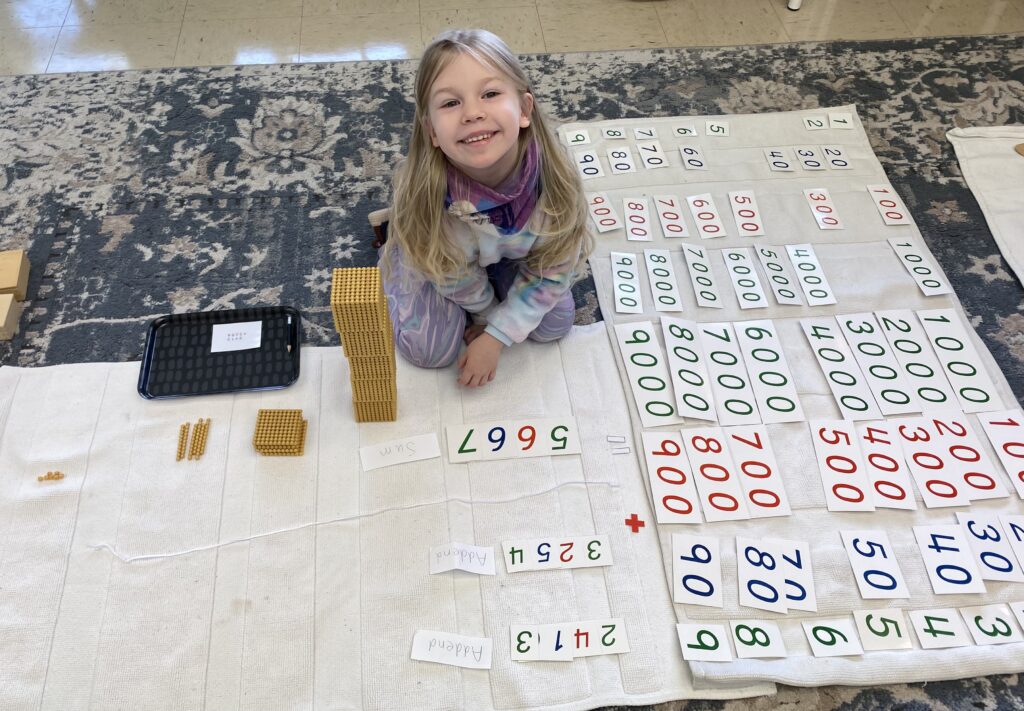The Montessori curriculum meets, and often exceeds, the required learning outcomes as outlined by the B.C. Ministry of Education for Kindergarten to Grade 7 students. Many aspects of the Ministry’s Core Competencies and “Big Ideas” have been a fundamental part of the Montessori education from the beginning; an individualized & flexible curriculum, a focus on skills, thinking & problem solving, a 3 year cycle to build on literacy & numeracy skills, the integration of subject areas to offer diverse perspectives & worldviews. At BBMS, both the BC and Montessori fundamentals of curriculum are met. A further explanation is offered below.
Due to Montessori’s integrated Spiral Curriculum design, subject areas and learning outcomes at times occur in a different order during these eight academic years when compared directly to a traditional public school curricula. The Spiral Curriculum encompasses the concepts of a subject integrated, collaborative and constructive curriculum. Each area of the curriculum begins with what Montessori called the five great lessons, also known as the Cosmic Curriculum, which provide a starting point for further exploration and study.
The Spiral Curriculum refers to the idea that the curriculum spirals over three year cycles, covering the subject areas of math and geometry, culture (socials and science), language, physical education, fine arts and social/emotional responsibility. With each three year cycle, the subject matter is refined into a more sophisticated level of discovery.


The Integrated Curriculum refers to the manner in which the Educators integrate all subject areas within each cultural lesson. The extensions or projects that are planned involve activities that require skills of math, language and culture to be demonstrated as student learning outcomes evolve.
The Cosmic Curriculum refers to the belief that the stories of the universe surpass all the stories available to young students. These stories are presented through the five Great Lessons: The Story of the Universe, The Story of Life, The Story of Humans, The Story of Civilization, The Story of Language, and The Story of Numbers. Each of these stories provides an impressionistic depiction of the origins of our universe and the basis or scaffold for further studies.